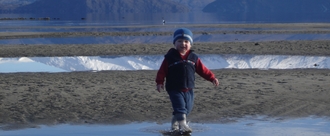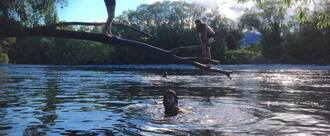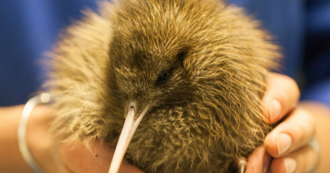-
Keep Kirikiriroa Hamilton BeautifulWe want to protect our environment from future damage to land, water, air and soil as well as restoring damage already done. We believe it is our responsibility for future generations to ensure we leave our environment better than we received it. A clean green Kirikiriroa isn't just about the environment it is also about well-being of people, communities and has an economic benefit as well.275 of 300 SignaturesCreated by Go Eco
-
Save Mangamaunu Surf BreakThe loss of Mangamaunu through mis-use of the emergency legislation is the loss of democracy by purposely cutting out community self-determination and thorough assessments and the democratic right of consultation. Mangamaunu and surfing in general is a significant contributor to the regions tourism industry, this surf break attracts tourists nationally and internationally. Mangamaunu is recognised as one of New Zealand's "17 best of the best" surf breaks. If these coastal works proceed, they will set a precedent, by skirting the best legal protections available to the environment, which Mangamaunu is entitled to. We believe any plans or construction of a cycle way should have the benefit of thoroughness of the RMA process to ensure no irreparable damage is done and good outcomes can be achieved for all. Mangamaunu holds the highest level of protection afforded under the RMA and NZCPS, equivalent to that of Te Mata peak and conservation lands potentially affected by the Ruataniwha dam in Hawkes Bay, or that of any national park. Avoid means avoid, and these consents do not even offer mitigation on a nationally significant surf break.They must be stopped. For more Information: www.surfbreak.org.nz https://www.facebook.com/savemangamaunu/?fref=nf https://www.facebook.com/Surfbreak-Protection-Society-158580380850950/8,537 of 9,000 SignaturesCreated by Michael Gunson
-
Swimmable Hātea 2020We get our drinking water from this river, and it is a taonga in the heart of our city. It is a normal expectation for this waterway to be clean, unpolluted, and swimmable. The people of this city want it clean, and living. https://youtu.be/kjp9j7xMUIg About the Hātea Catchment: The Hātea sub catchment of the Whangārei Harbour catchment covers 4,470 hectares (15%) of the greater harbour catchment. Land cover is a mix of urban land uses (including some light industry), exotic forest, indigenous vegetation and pasture. There are no dairy farms in the catchment and most of the pasture area is in lifestyle blocks, with a handful of small (e.g. c.70ha) beef farms. There are approximately 140 properties over 1.5ha in the Otuihau / Whangārei Falls catchment with land in pasture. The upper catchment has pine forestry, which was established originally for soil conservation purposes. Harvesting the areas in this catchment has now been completed and the next rotation has been planted. Two main streams join approximately 1km upstream of the Falls. Most of the catchment has relatively gentle rolling or flat contour and streams are mostly shallow and slow flowing, with clay streambeds. What's the state of the Hātea right now? The Land Air Water Aotearoa monitoring shows that the Hātea is in the worst 50% of all waterways in Northland/Tai Tokerau for E. Coli, Nitrogen, and one indicator of Phosphorus. It is in the worst quarter of all waterways for Ammoniacal Nitrogen - for which human and animal wastes are the major cause. https://www.lawa.org.nz/explore-data/northland-region/river-quality/hatea-river/ What's being done so far? In 2015 Northland Regional and Whangarei District Councils began to focus together on improving water quality at Otuihau. Together they formed a working group which includes representatives from both councils, community groups like Tiki Pride and the Otuihau Community Development Trust, Pehiaweri Marae and Northland District Health Board. They're working together to raise awareness of water quality issues in the Hātea catchment and how individual people can make a difference. Why sign? We agree with the work the councils have begun to change the water quality in the Hātea - what we are hoping to achieve with the submission of this petition is to enable this beginning to be prioiritised so it can be completed in a shorter timeframe, provide sustainable support to those who are working on the project, and set a precedent for other waterway health projects in Northland/Tai Tokerau.206 of 300 SignaturesCreated by Ash Holwell
-
Reduce waste in New ZealandOn 01 January 2018 a Chinese ban on New Zealand waste imports came into force [1]. Aside from meaning thousands of tons more waste either has to go to landfills or be processed here, it brings the spotlight onto our rather poor efforts at recycling, and reducing waste. It has been noted that New Zealand is lacking an up to date strategy fit to deal with the waste issue confronting New Zealand in 2018. A strategy exists, but it is out of date and the Associate Minister for Environment, Eugenie Sage, has acknowledged this [2]. A few days before Christmas, the United Nations criticized our handling of electronic waste. The absence of any significant measures to reduce waste being introduced by the previous Government, means potentially 9 years have passed when New Zealand could have been acting on our growing waste problem. One of the most dangerous waste forms which has been recently highlighted is e-waste. This is waste computer hardware - mouses, keyboards, screens, printers, CPU's, speakers, and so forth - as well as cellphones, microwaves, televisions, alarm clocks, smoke alarms, iPads, the radio systems from cars, sound systems and so on. The International Telecommunications Union (ITU) singled out New Zealand and Australia just before Christmas to say together we produce the highest volumes of e-waste in the world while noting we have among the lowest documented rates for recycling [3]. Here is a list of every day devices and some of the toxic elements in them: SMARTPHONES: Lithium (battery), Silicon (screen), Boron, Antimony, Neodymium, Praesodymium FLAT SCREEN TV: Neon, Xenon SMOKE DETECTOR: Americium LAPTOP/DESKTOP: Beryllium, Lead, Mercury, Chromium MICROWAVE: Beryllium COMPACT DISC: Aluminium DVD PLAYER: Silicon, Aluminium BATTERIES: Lithium, Cadmium There are substantial and long lasting gains to be had that extend beyond a healthier environment. These gains also include healthier soils, water, vegetation and atmosphere. There will be less risk of contaminants leaching into ground water. Economic benefits exist too as a demand for parts, valuable metals and so forth can be extracted and reused with some potential for job creation to enable this work. So let us have this necessary conversation about an out of date framework. Let us get the appropriate framework into place and let us tackle a problem that could rubbish our reputation as clean and green. You may have read "The Lorax", a simple yet brilliant kids story about how a cartoon figure who stood up for the truffler trees, as one by one they were all cut down to make "thneeds". The environmental theme present in the story which you can see below is as important today as it was when the movie was made. https://www.youtube.com/watch?v=8V06ZOQuo0k ---- References [1] http://www.stuff.co.nz/environment/100286427/21m-of-nz-waste-turned-away-from-china [2] http://www.mfe.govt.nz/waste/waste-strategy-and-legislation/new-zealand-waste-strategy [3] https://www.stuff.co.nz/business/industries/99848483/unbacked-body-singles-out-new-zealand-as-an-ewaste-laggard544 of 600 SignaturesCreated by Robert Glennie
-
Save our Precious Drinking WaterNew Zealand is in a dire situation regarding a stable consistent clean safe and consistent drinking water supply. A Government inquiry into the Havelock North drinking water crisis in 2016 has revealed 20% of New Zealand’s drinking water doesn’t meet safety standards.[1,2] In April 2016, the Ministry of Health warned that "the overall burden of endemic drinking water-borne gastrointestinal disease has been estimated at 18,000 to 34,000 cases per year" - but with this sort of illness going often unreported, it could be higher.[3] There are presently in December record temperatures all over the country and these show no sign of abating.[4] High temperatures have been partly causing algal bloom in Taupo, leading doctors to warn the algae may cause rashes, nausea and breathing difficulties. [5] The situation in Napier in the first week of December was dire. Huge amounts of water were drawn off and the supply was left wanting, with some discoloured water. Residents were distressed and lacking information.[6] In the Waitakeres in West Auckland people with tanks are ringing for water and being told it cannot be delivered until after Christmas. On the West Coast there is warnings of a looming problem if the dry weather continues.[7] We ask that the Minister of Local Government direct Local Bodies in New Zealand to adopt a comprehensive standard for safe drinking water and that Local Bodies adopt this standard and monitor the situation during the summer on a daily basis. Communities are nervous about their unstable water supply and cannot trust its quality. A consistent standard must be imposed and accepted as urgent and this standard must be monitored over summer on a daily basis by council staff. This will mean members of the community will feel more secure about their water supply over summer. As part of water monitoring, there must also be water restrictions imposed over the hot summer, the conservation message for water must start immediately. Communities need to be directed to conserve at the right times and know why they are conserving. Restrictions need to be put in place now and not left to the last minute. Communities must have trust that drinking water supply is safe and secure. References 1 - https://www.dia.govt.nz/Government-Inquiry-into-Havelock-North-Drinking-Water 2 - https://www.interest.co.nz/news/91258/government-inquiry-havelock-north-water-contamination-finds-widespread-and-systemic 3 - Douse the water deniers http://www.nzherald.co.nz/opinion/news/article.cfm?c_id=466&objectid=11958203 4 - http://www.stuff.co.nz/environment/98647685/2017-set-to-break-records-for-extreme-weather 5 - https://www.tvnz.co.nz/one-news/new-zealand/safety-concerns-over-algae-in-lake-taupo-causes-ironman-scrap-swimming-leg 6 - https://www.stuff.co.nz/environment/99532411/water-shortage-in-napier-worsens-as-consumption-soars and http://www.nzherald.co.nz/the-country/news/article.cfm?c_id=16&objectid=11953334 7 - https://www.odt.co.nz/regions/west-coast/water-shortage-looms-west-coast713 of 800 SignaturesCreated by Heather and Jerry Tanguay
-
Let's limit single-use plastic plant potsIf we're banning single use plastic bags why not plastic pots? By growing our own vegetables, fruit and plants we are trying to be more eco-conscious, sustainable and enjoy their benefits - but polluting the environment with plastic waste to do so, does not make sense. One plastics recycling drive by gardening stores in the USA brought in 4.5 tonnes of plastic in each store! [1] While we appreciate that some keen gardeners reuse their plastic pots, most will end up in landfills - this is because many recycling centres do not accept them. There are smaller independent retailers who sell in biodegradable pots which shows it can be done. Many larger retailers are hesitant to change, it's up to us to demand it. We need non-plastic options so we can choose the way we buy our seedlings and plants! 1 - https://www.lowes.com/cd_Garden+Center+Gets+Greener+With+Recycling_283670888_1,529 of 2,000 SignaturesCreated by Monique Russell-Groothuis
-
Protect Timaru's PenguinsThere is an abundance of dedicated spaces for dogs to exercise in the Timaru district (http://bit.ly/2z3PD4N). The little blue penguins (kororā) that nest at Caroline Bay, however, do not have such luxuries. We are exceptionally lucky to have a breeding colony of endangered penguins (kororā) so close to our town centre. After a short drive or walk, we can watch them come ashore — undeterred by traffic and noise from the port just metres away. Research shows that dogs pose the biggest threat to little blue penguins (kororā) across New Zealand (http://bit.ly/2z0ou2n). They are vulnerable when they walk from their nests to the ocean in the morning before the sun rises, and again when they come in to feed their chicks at night. During the day, chicks are left behind in the burrows where they are vulnerable to dogs, which follow their natural instincts to sniff out the strong smelling birds. In summer when this change would take effect, the earliest sunrise is 5:44am and the latest is 7:50am. If Timaru District Council allows dogs on the beach during the proposed times of 5am - 9am (as announced by Councillor Sally Parker on her Facebook page) this allows a full 2 hours and 50 minutes during which there is an increased chance that a penguin could be attacked or killed by a dog being walked on the beach. August through until March are the most important months for little blue penguins (kororā) to mate, lay their eggs, raise their chicks, and come ashore to moult. The loss of one or both parents means the chick will not survive, so protecting them during the full breeding season is critical. Even if you’re cynical about the intrinsic value of nature, the penguins are an increasingly important part of our local economy. Compared with other towns in the region, Timaru has relatively few tourist attractions. We know the penguins can have up to 100 visitors in a night. Some people visit specifically to see them and contribute significantly to the local economy by staying in hotels, eating out, and contributing to local businesses. You only need to look at Oamaru’s success to see their potential to open a new avenue for tourism in the region. If you have not done so recently, we strongly encourage you to visit Caroline Bay one evening to watch the penguins come in. You will see how special these birds are and quickly learn that people from Timaru and beyond are exceptionally proud to have them breeding in the bay.1,401 of 2,000 SignaturesCreated by Kimberley Collins

-
Recycle All Plastic HCCWe want to protect the whenua and make the most of the resources that we have. All plastics are given numbers by the companies that create them. Currently, only plastics 1 and 2 are collected at kerbside in Hamilton. We don't like sending our yogurt pots and other similar plastics to landfill. We would like plastics 1-7 to be collected at kerbside for recycling. There are so many awesome products that this plastic can be used for, including carpet and outdoor furniture. There are tons of benefits to recycling plastic. It stops the need for as much new plastic production, it stops plastics from ending up in our environment, especially the marine environment, and it stops plastics from being put in landfill where they last for a very long time causing environmental damage. Hamilton City Council's current recycling contract commenced in 2002 and there were limited options for recycling more than plastics 1s and 2s. This contract is now up for review, which is why this is the time to call for these changes. Auckland and Christchurch Councils recycle Plastics 1-7, so we think Hamilton City can too!! Under the current service, 27 per cent our city’s household rubbish is recycled; the remaining 73 per cent goes to landfill. We don't think this is good enough and we would like to be able to do more to protect our environment. Please extend the recycling of plastics in our city.1,090 of 2,000 SignaturesCreated by Troy & Hemi May Kelly

-
Ask Countdown NZ: Ban The BagWoolworths Australia Countdown NZ's parent company is banning single-use plastic bags. [1] New Zealanders use around 1.6 billion single-use plastic bags every year. Plastic bags often end up in our rivers, lakes, beaches and oceans. Plastic bags in the ocean are a huge hazard to marine life. The bags can be swallowed, wrapped around the necks or fins of marine animals. They can be mistaken for food and generally don't belong in the ocean.[2,3] It has recently been revealed plastics were being eaten by the majority of New Zealand fish, and that a third of turtles and seabirds that washed up dead on Kiwi beaches had eaten plastic.[4] There is strong support from local government, the retail sector, and everyday Kiwis to do something.[4] Countdown listened to the Waiheke Island community. It is both plastic bag free and encourages the use of biodegradables.[5] Doesn't the rest of NZ deserve the same? By 2050 there will be more plastic than fish on the ocean. Not using plastic bags is an easy thing for us to do that would make a big difference. We need to Ban The Bag before its too late. Please help! Please take action! Countdown Waiheke Island did it, sign and share the petition asking Countdown NZ to ban the bag. Comment on their facebook page https://www.facebook.com/countdown/ Tweet @CountdownNZ #CountdownBanTheBag #BanTheBag Phone the Countdown Customer Care Centre: 0800 40 40 40 email: [email protected] Spread the word however you can #CountdownBanTheBag #BanTheBag 1 - Australian supermarket giant Woolworths to ban plastic bags within 12 months, 14 July 2017 https://www.stuff.co.nz/business/world/94756897/australian-supermarket-giant-woolworths-to-ban-plastic-bags-within-12-months 2 - Drowning our marine life in a growing sea of plastic, 27 Mar 2017 http://www.nzherald.co.nz/nz/news/article.cfm?c_id=1&objectid=11825914 3 - More than 9 billion tonnes of plastic has been produced since 1950, and the vast majority of it is still around, 20 July 2017 https://www.stuff.co.nz/business/better-business/94924204/Theres-literally-a-tonne-of-plastic-garbage-for-every-person-in-the-world 4 - Plastics were being eaten by the majority of New Zealand fish, 27 July 2017 http://www.stuff.co.nz/national/95119319/17800signaturestrong-petition-calling-for-a-plastic-bag-levy-presented-at-parliament 5 - Countdown Waiheke Island did it, 27 July 2016 http://www.stuff.co.nz/business/industries/82435349/after-15-years-the-wait-is-over-for-new-countdown-waiheke 24 May 2016 http://www.scoop.co.nz/stories/AK1605/S00726/countdown-waiheke-is-now-plastic-shopping-bag-free.htm595 of 600 SignaturesCreated by Tim Pate
-
Establish an Independent Commission for WaterWater - our lifeblood, a taonga and precious resource. We, and most other life forms on this planet cannot survive without it. In Aotearoa/New Zealand we are fortunate to have a relatively abundant supply and in some places, our water is of unsurpassed quality. But our guardianship of this treasure feels both negligent and negligible. In fact, there is clear evidence that many of our fresh water systems are suffering and our current water use is unsustainable. We have issues surrounding; access, pollution, “swimmable” rivers, the impact of agriculture and irrigation, loss of wetlands and their fauna, privatisation and selling our water to overseas companies. These issues are complex and interrelated. Resolving them will require focused, well-researched and sustained action. We need commitments and action from all aspects of our society – rural and urban communities, farmers and industries, politicians from all sides of the spectrum, scientists and ecologists, local and national government. We already have the Land and Water Forum (http://www.landandwater.org.nz/). They make well researched and constructive recommendations, but their recommendations are not recognised or implemented by government. We need an independent and well-resourced Waterways Commission. A Commission that can implement and enforce its recommendations, that puts the viability, sustainability and sanctity of our water at it’s centre, and that works with the diverse interests to create a national water strategy that protects, restores and sustainably manages this precious resource. And we need to act now. Please sign up if you agree. - Our fresh water 2017, Ministry for the Environment http://www.mfe.govt.nz/publications/environmental-reporting/our-fresh-water-2017 - New Zealand’s fresh waters: Values, state, trends and human impacts, Professor Sir Peter Gluckman, Chief Science Advisor http://www.pmcsa.org.nz/wp-content/uploads/PMCSA-Freshwater-Report.pdf - Top scientist: Fixing freshwater issues an 'enormous challenge' http://www.stuff.co.nz/environment/91418638/Top-scientist-Fixing-freshwater-issues-an-enormous-challenge - Dame Anne Salmond: NZ can’t ignore water warnings https://www.newsroom.co.nz/@environment/2017/03/26/16845/oecd-call-on-our-waterways-must-be-heeded - Water Fools? http://www.radionz.co.nz/programmes/water-fools - Landmark report finds freshwater at risk http://www.radionz.co.nz/news/national/329582/landmark-report-finds-freshwater-at-risk185 of 200 SignaturesCreated by Hilary Unwin
-
NZ Deserves Honest Swimming StandardsA recently released report from NIWA showed that the Government's proposed swimming standards were worse than those from the 2014 policy. Despite the Government claiming to have a goal of swimmable rivers by 2040, their policy weakened human health standards and only applies to 10% of the whole country's waterways. This won't solve our problems. It will only make them worse. Please use this form to make an official submission to the Ministry for the Environment's National Policy Statement for Freshwater Management. Submissions are open now until 5pm Thursday 25 May. New Zealanders have asked the Government and the Ministry for the Environment again and again for a genuine swimmable bottom line for rivers & lakes. Aotearoa New Zealand has serious problems of freshwater contamination and polluted rivers and lakes. We must take steps to stop this situation from getting worse and to begin to turn this around. The first step is to write strong protection for rivers and lakes into our country's freshwater policy. We can do this now and, in doing so, it will influence the work of local councils, industry and government to improve freshwater management so that rivers and lakes are protected for all New Zealanders. The OECD wrote in its 2017 Environmental Performance Review that New Zealand is reaching environmental limits and that freshwater pollution is one of areas of degradation that threatens the health of our people, our environment and our economy. As Sir Peter Gluckman, the Prime Minister's Chief Science Advisor said in a recent interview on his report on the state of the nation's freshwater, "The reality is we cannot keep going as we have been." He's right and the public is right. We have to change and the first step for improving the health of our rivers and lakes is this freshwater policy. It is the document on which decisions around the country will be made. Let's make it the best and the strongest it can be for the sake of this beautiful country. *The signatures counted here also include the submissions made on https://www.toko.org.nz/petitions/nz-deserves-honest-swimming-standards-1 [1] https://niwa.co.nz/news/niwa-technical-background-report-for-mfe-clean-water-swimmability-proposals-for-rivers [2] http://www.mfe.govt.nz/sites/default/files/microbiological-quality-jun03.pdf1,660 of 2,000 SignaturesCreated by Marnie Prickett

-
Say no to a pipeline through a Kiwi sanctuary by Mount Aspiring National ParkA company called Okuru Enterprises Ltd, now trading as Alpine Pure has been given the right to take and export 800,000 tonnes of water – about 800 million litres – each month from a water catchment high in the mountains at Mount Aspiring National Park. As part of this arrangement, the company has also been given the right to lay a pipeline to transport the water out to sea to waiting ships through a sanctuary for New Zealand's rarest kiwi, the Haast Tokoeka. There's just over 400 Haast Tokoeka left in Aotearoa. DoC says its status is "Nationally Critical", and 33 of them are believed to live near the pipeline. Our national bird cannot afford for this risk. The use of DoC land costs the company just $5000 year, and the consent which expires in 2027 costs nothing, except for minor administration and processing fees. It'd bad enough we're selling off our water for private profit at next to nothing. It's worse we're willing to put our native kiwi at risk. The resource consent states that Okuru Enterprises must develop a ‘kiwi management plan’, with the objective of “avoiding adverse effects from construction and ongoing activities within conservation land on Haast tokoeka [kiwi] living within a 100ha radius of the proposed pipeline route”. It goes on to state that if kiwi are adversely affected, they will be “removed from the site”. But here’s the thing, ‘If things go wrong, we can just move the kiwi’ is a really bad precedent to set. To make matters worse, the endangered Fiordland Crested Penguin also lives in the pathway of the pipeline at Jackson’s Bay. The proposal to take our water, ship it off shore for what seems like marginal benefit to the local community but with a potentially catastrophic cost to two species that are already at critical risk of extinction looks like a bad one. As we know from our own history, humans tend to underestimate how wrong things can go, and it’s usually our wildlife, trees, rivers, birds and lakes that pay the cost. Please sign the petition and share it with your friends today. Read more: http://m.nzherald.co.nz/nz/news/article.cfm?c_id=1&objectid=11777864 http://www.stuff.co.nz/business/88099749/from-national-park-to-overseas-plan-to-export-billions-of-litres-of-west-coast-water http://www.newshub.co.nz/home/politics/2017/04/company-given-right-to-lay-pipeline-through-kiwi-sanctuary.html18,949 of 20,000 SignaturesCreated by Team ActionStation


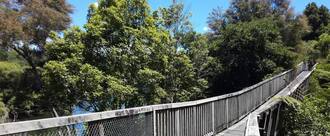
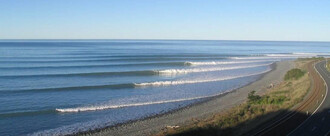

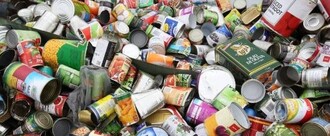
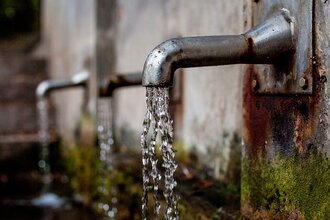
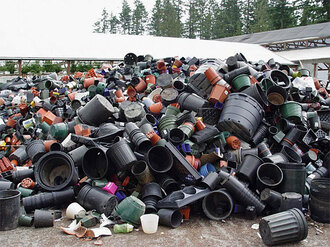

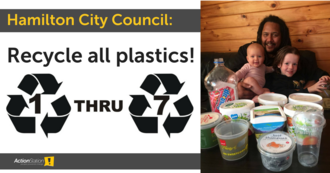.png)

